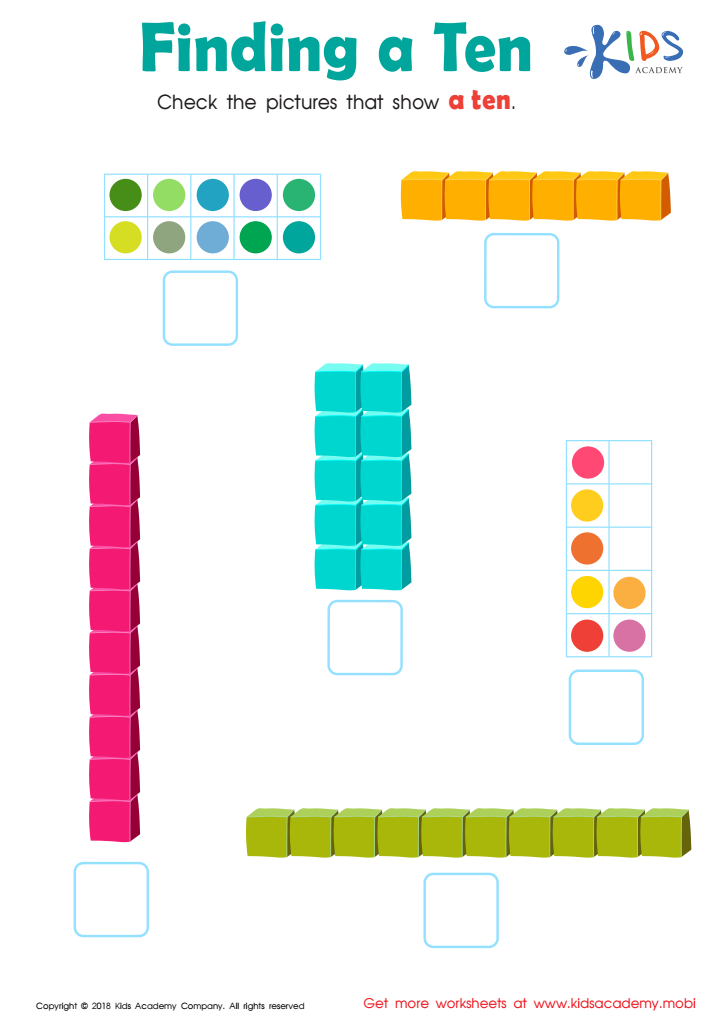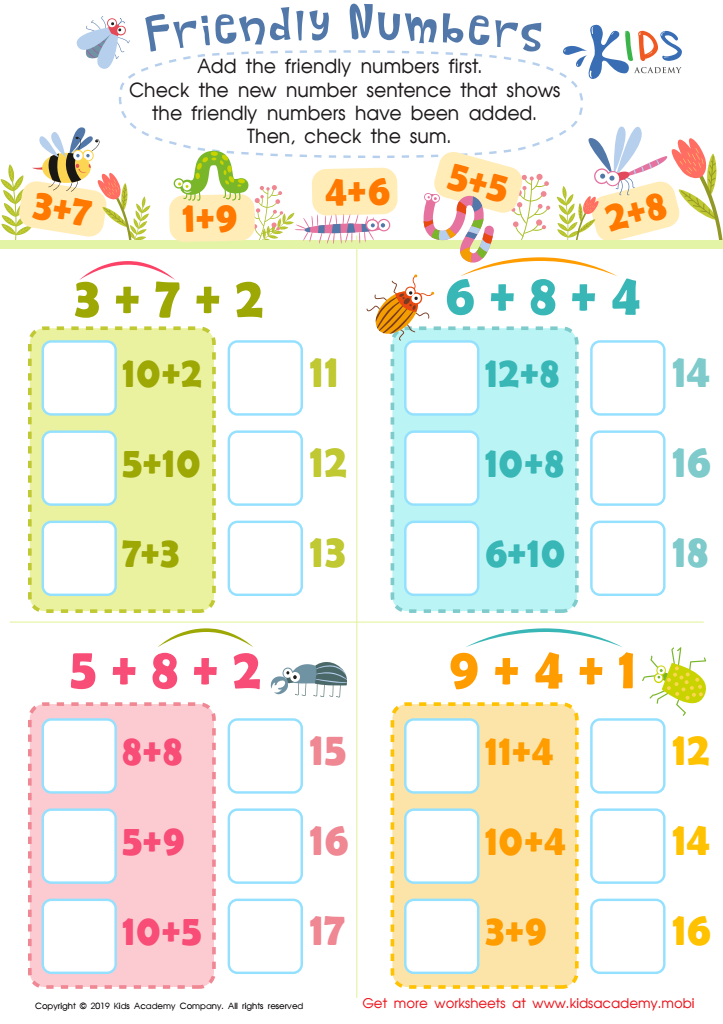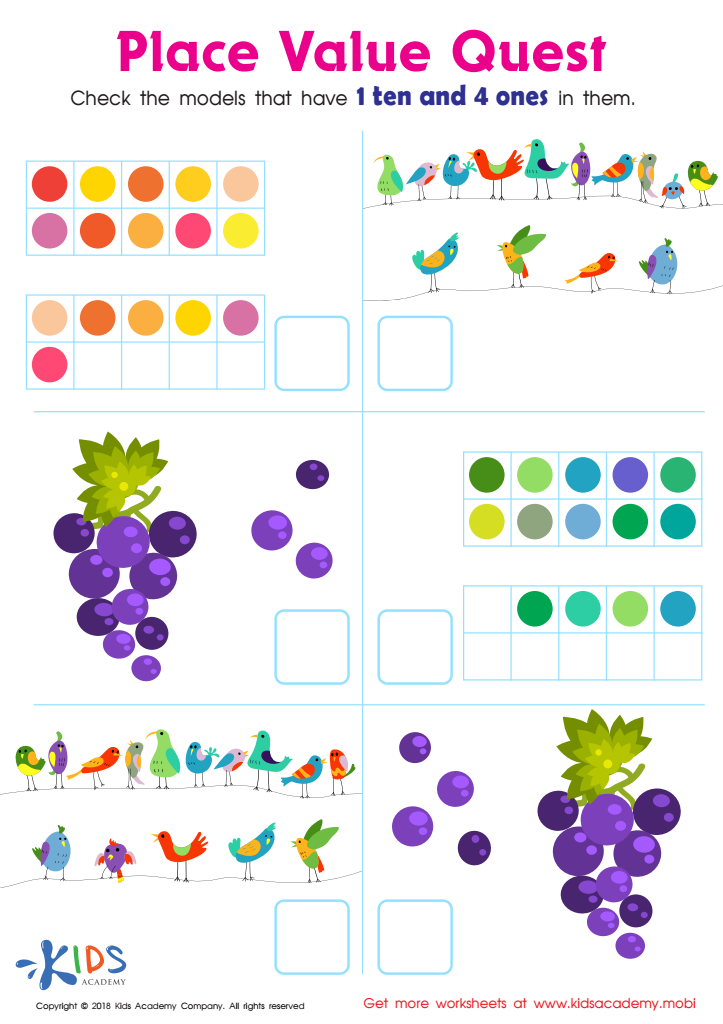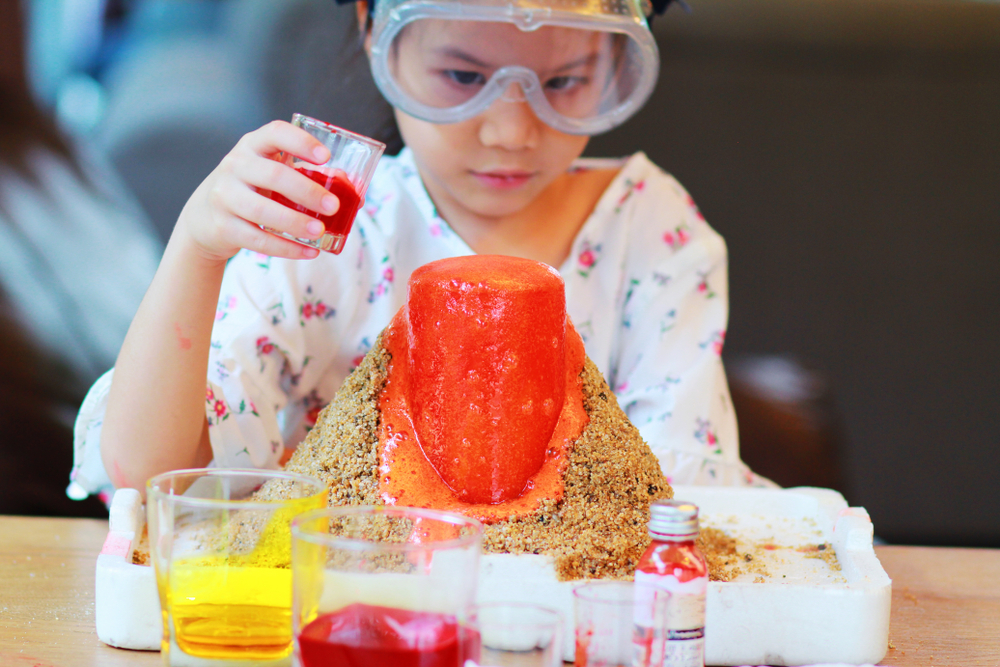Practicing arithmetic operations Worksheets for Ages 6-8
3 filtered results
-
From - To
Enhance your child's math skills with our specialized Practicing Arithmetic Operations Worksheets for Ages 6-8. These worksheets are designed to make learning fun and effective, focusing on key arithmetic operations such as addition, subtraction, multiplication, and division. Each printable worksheet offers engaging activities that cater to young learners, ensuring they develop a strong foundation in mathematics. Perfect for home or classroom use, these resources help children gain confidence and proficiency in essential math skills, setting the stage for future academic success. Unlock their potential with our comprehensive collection of arithmetic worksheets!


Finding a Ten Worksheet


Friendly Numbers Worksheet


Place Value Quest Worksheet
Practicing arithmetic operations, such as addition, subtraction, and eventually multiplication and division, is vital for children aged 6-8 because it lays the foundational skills necessary for their future academic success and daily life problem-solving abilities. At this developmental stage, children's brains are highly adaptable, and consistently engaging them in arithmetic helps to build their cognitive processing power and logical thinking skills.
When children practice arithmetic, they enhance their number sense, which is the ability to understand, relate, and connect numbers. Strong number sense is crucial, as it supports learning in more advanced areas of mathematics and other subjects that require quantitative analysis. Regular practice helps to cement these basic skills, making more complex math learning smoother and less intimidating.
Moreover, arithmetic training at a young age fosters critical life skills such as concentration, attention to detail, and perseverance. It also boosts children's confidence and willingness to tackle challenges because they are less afraid of making mistakes when they have a solid grasp of the basics.
Lastly, early arithmetic practice prepares children for a world increasingly driven by STEM (Science, Technology, Engineering, and Mathematics) fields. Building a robust mathematical foundation places them in a better position to excel in school and, eventually, in various careers that require analytical skills. Therefore, parents and teachers should prioritize and invest time in developing these fundamental skills during these formative years.

 Assign to My Students
Assign to My Students
















